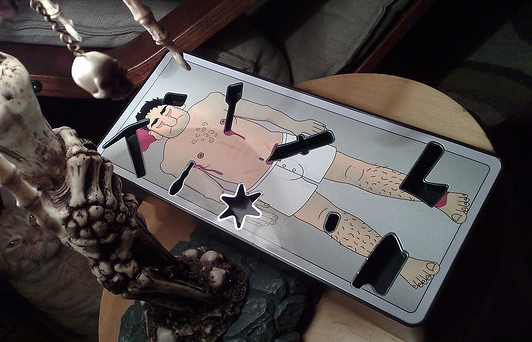The pleasure of dissecting people is only matched by the knowledge it brings.
Not the sharp surgeon’s scalpel but blunt books have let me dissect human behaviour and made me be a better writer.
More importantly, it has helped (much) greater writers than me to create characters and stories we have enjoyed and respected.
Focused groups
If writing is the study of people, as I argued in a previous essay, then we should study them thoroughly, dissecting human nature and its whys, whats and hows.
I’m not the first to say this – the anthropologists, psychologists and journalists got there long before me. Even politicians want to know what people think, even if it has resulted in ‘focus group politics’ under Tony Blair (though he does deny it).

More significantly, dissection leads to more surprising discoveries than anything others could make up. Much like Renaissance science saw the shift from classical ideas that everything could be proved by deduction to that of empirical research, research into a subject will turn up more than could be ‘deduced’ from prior knowledge.
There are more things in heaven and Earth
I’ve written a script about an exorcist, Personal Demons. Researching exorcisms turned up more strange characters and alleged events than even my 30-years of pop-culture and Hollywood could have imagined, let alone claimed to be real.
For example, there’s Archbishop Emmanuel Milingo – an exorcist who in 2001 married a Korean nearly 30 years his junior in a ceremony presided over by Sun Myung Moon, better known as the leader of the ‘Moonies’. It was then down to Cardinal Ratzinger, now known as Pope Benedict XVI, to go and drag a protesting Milingo away from his wife.
The charismatic Milingo, who was later excommunicated, cheerfully held daily exorcisms and had a compound complete with nuns, the possessed, and armed guards, as well as got into disputes with other, ‘lesser’, exorcists.
Greater than fiction
If I were to write a script about a future pope, the head of the Moonies and a married exorcist bishop who lives under armed guards I’d be lucky to sell it as a B-movie, although I’d probably be too embarrassed to tell anyone about it.
Likewise, I discovered priests who have set up help lines for former Satanists, people who believe they are possessed due to curses by their exes, and glamorous dustbin ladies who take a daily exorcism in the middle of their rounds.
Perhaps I’m limited in my imagination, but I wouldn’t have discovered any of this had I not took apart the area I was researching and studied its people.
Showing the body of research
Dissecting also serves another purposes – showing over telling. I can tell you ad projectile nauseum that I am interested in exorcists, but it is only by research and doing the work that I can show it.
Dissecting people shows that you’ve found your passion and that you want to explore.
As writing is for and by people, the least you can do is dissect them.
Next time, I’ll write about the great surgeons, those who have dissected people and reassembled them to suit their audience.

One reply on “Dissecting people”
[…] my previous post I believe that the great heroes of profession, inspiration for treating writing professionally, are […]